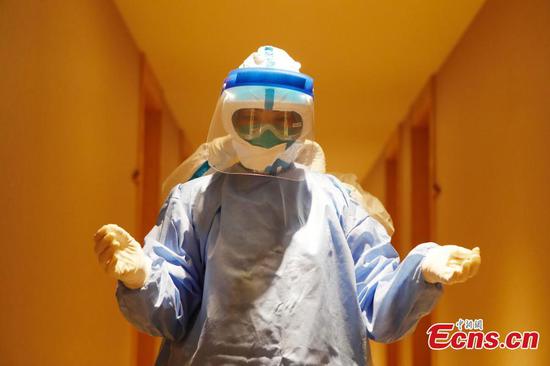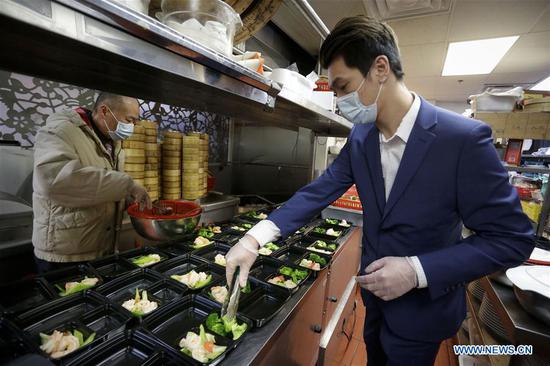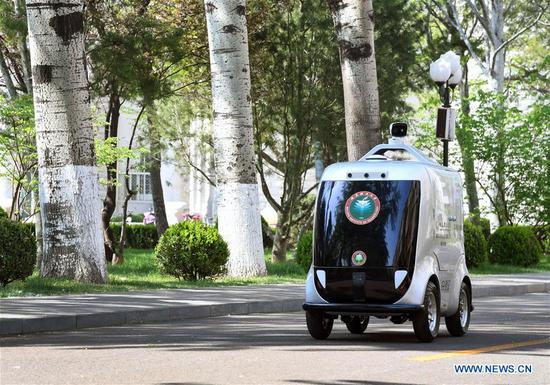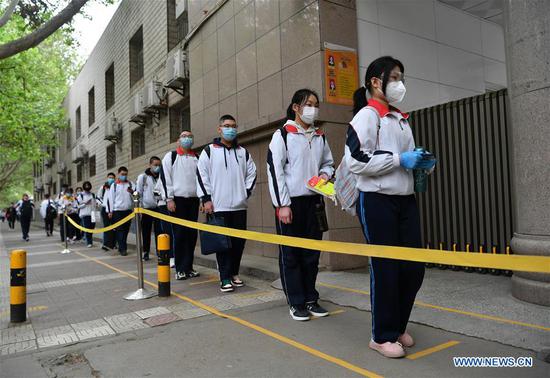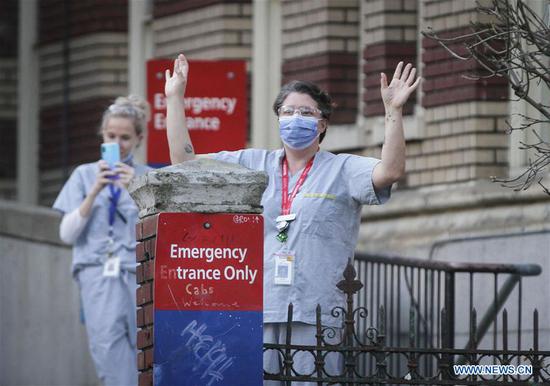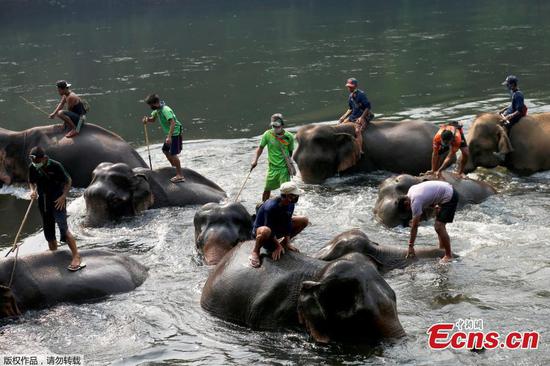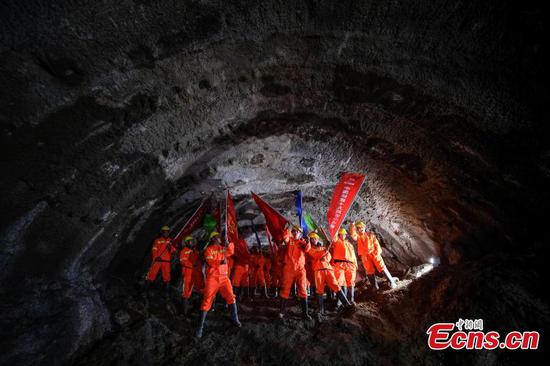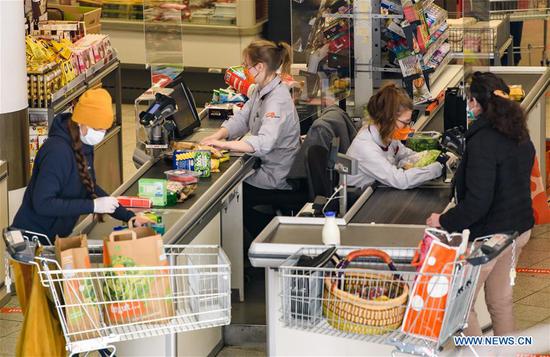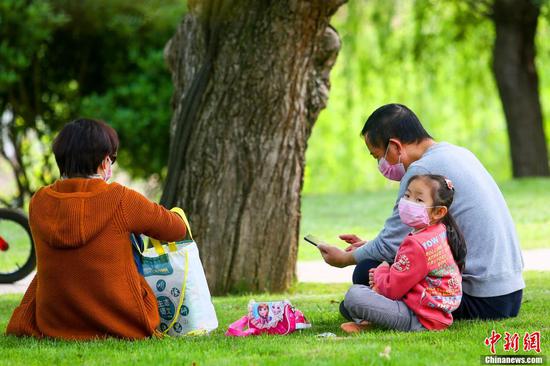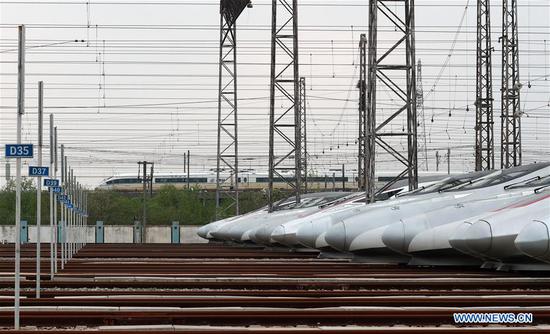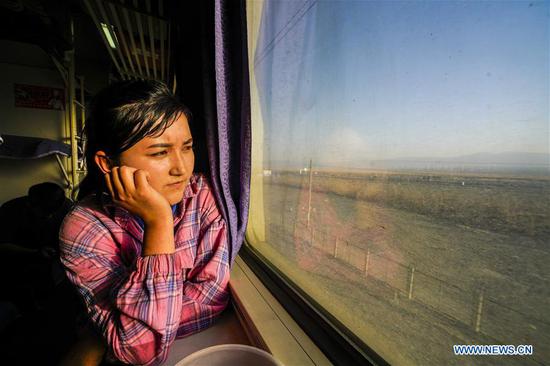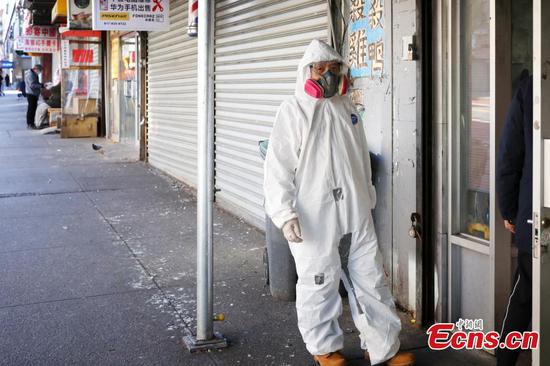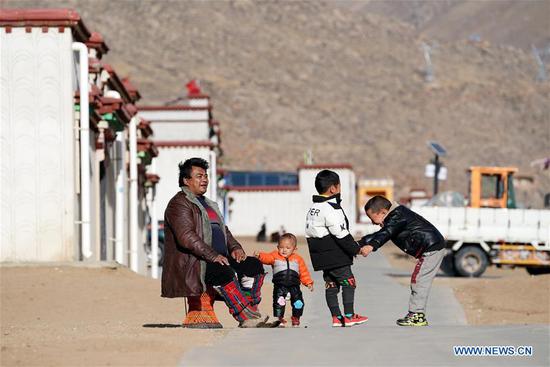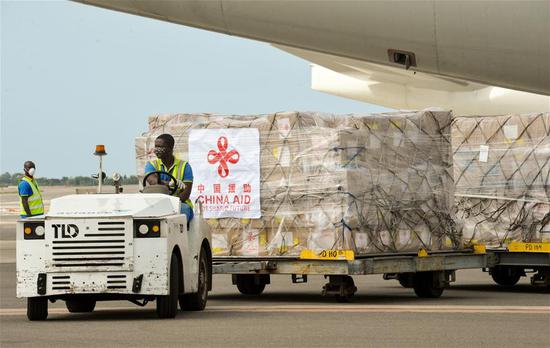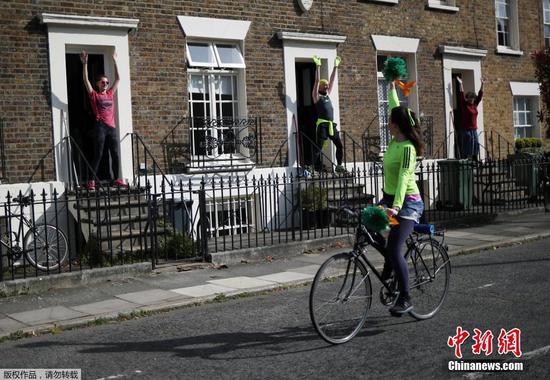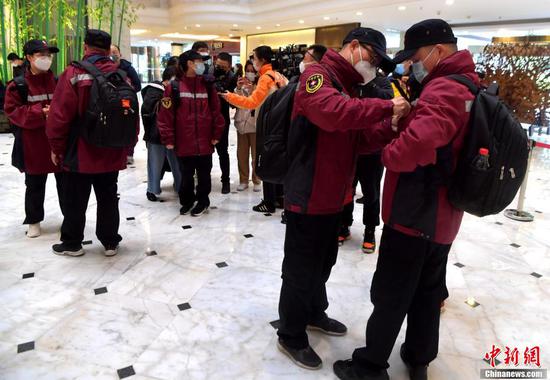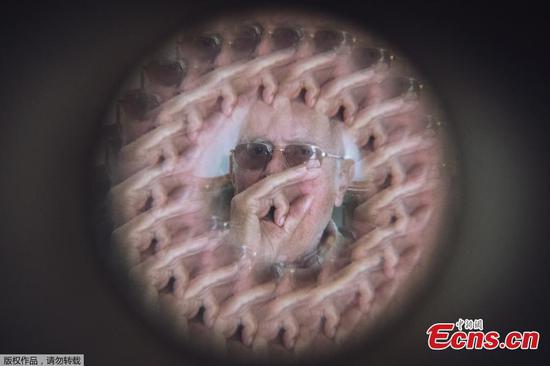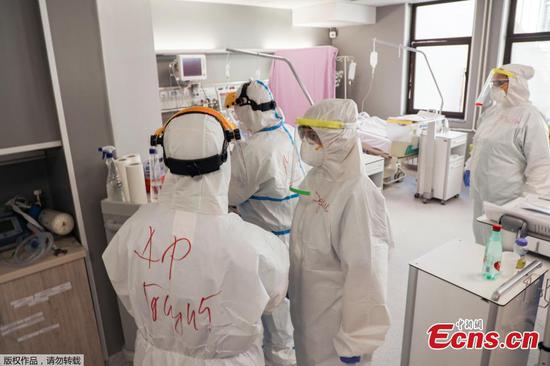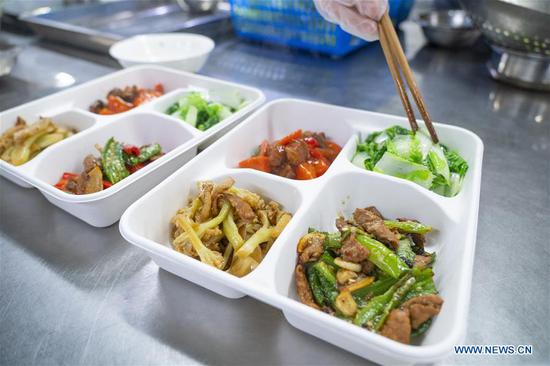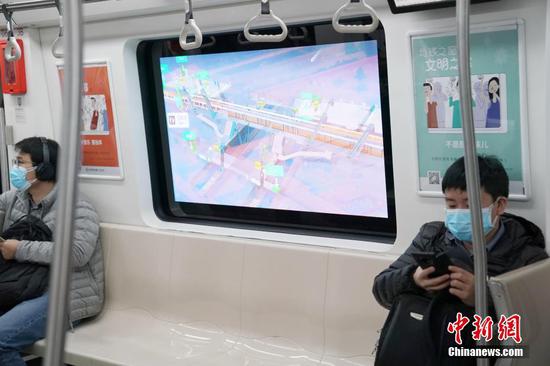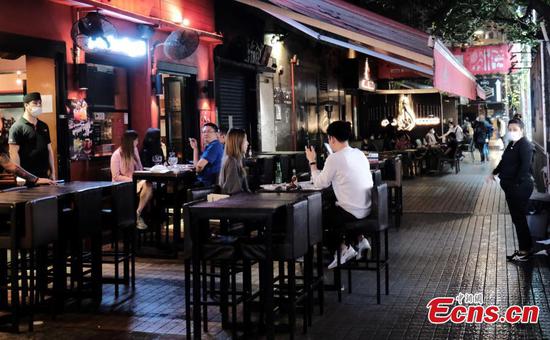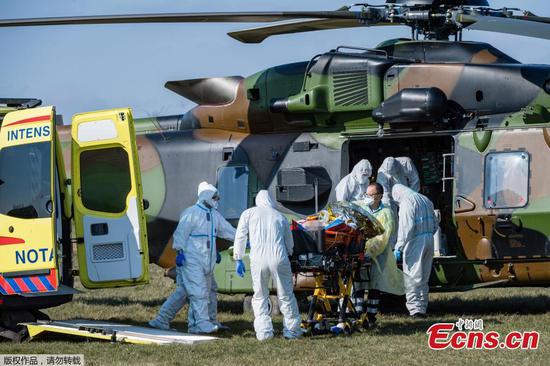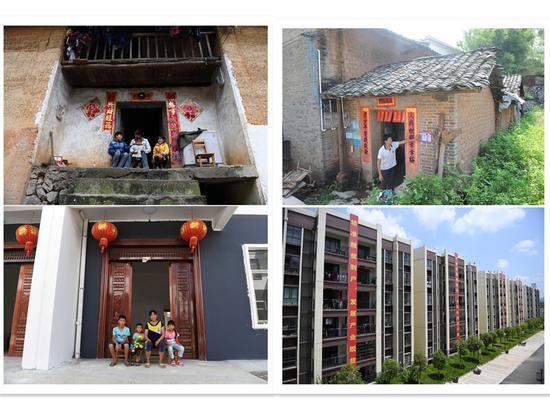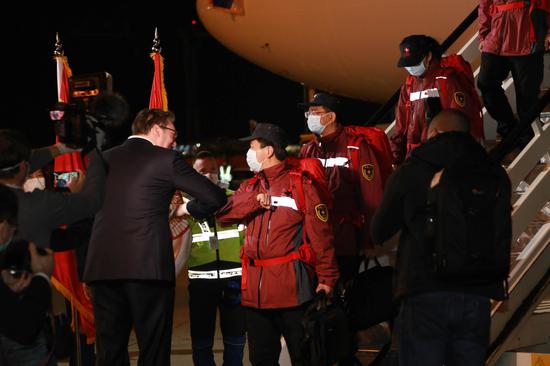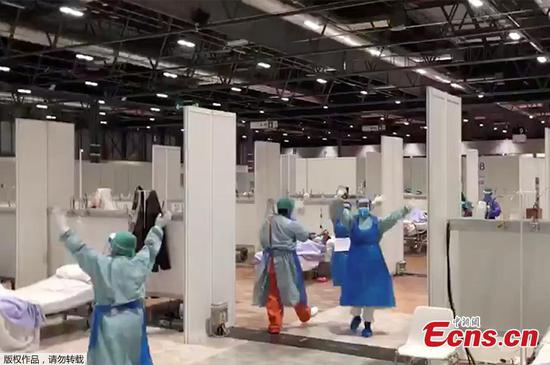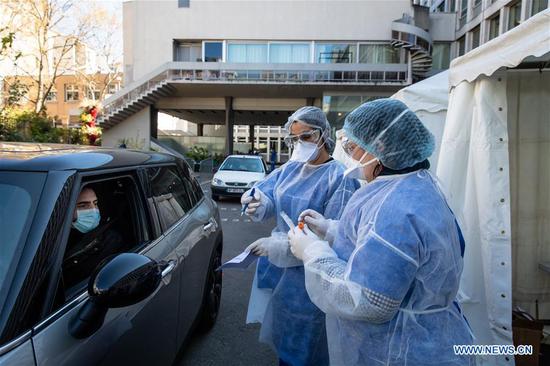British government admits 17.5 million antibody tests it ordered unreliable
British Prime Minister Boris Johnson is breathing without a ventilator and has not been diagnosed with pneumonia, Downing Street has said.
Dominic Raab, the foreign secretary, took the nation's reins on Monday evening after Johnson's COVID-19 symptoms worsened and he was taken to an intensive care unit.
The Times newspaper said one unnamed government minister described Johnson's rapid deterioration as "truly shocking".
Downing Street said Raab, as first secretary of state, would stand in "where necessary".
In Tuesday's news briefing, Raab said the prime minister's illness has been a shock to those in Cabinet, adding, "He is not just a prime minister, not just our boss, but also a colleague and also our friend."
He added: "I'm confident he'll pull through because if there's one thing I know about this prime minister, he's a fighter."
He said Johnson is "receiving the very best care from the excellent medical team" and remained stable overnight. He added that the Cabinet will not "blink or flinch from the task at hand".
The 55-year-old Johnson received messages of support from world leaders, including United States President Donald Trump and French President Emmanuel Macron.
Trump, who described Johnson as a good friend, said people in the US are "all praying for his recovery". Macron said he and his nation are sending their "support to Boris Johnson, to his family and to the British people at this difficult moment".
Doctors in the United Kingdom continue to voice serious concerns about a lack of personal protective equipment, or PPE, with some calling the current provision "useless", the British Medical Association has warned.
In a BMA survey of almost 2,000 health workers, more than two thirds of doctors-69 percent-said they did not feel protected from novel coronavirus.
One hospital doctor said: "The quality of our eye protection and apron is useless. Some of the PPE provided feels like a tick-box exercise just for psychological reassurance."
The total number of people in UK hospitals who have died with coronavirus has now reached 6,159, with 786 new fatalities recorded overnight, its largest daily death toll increase.
The Financial Times has seen a leaked memo that indicates London hospitals are now also running short of vital equipment in intensive care wards, including blood dialysis machines needed to treat patients suffering from novel coronavirus-related kidney failure.
The shortages, in addition to concerns about the lack of ventilators, emerged from a conference call of some 80 senior National Health Service doctors.
Despite this, the UK is studying the experience of China and Italy as it considers how the nation could emerge from its coronavirus lockdown situation, the Financial Times reported.
The newspaper quoted a government official who said: "We'll be looking out for a possible second wave of the virus, but if Italy and China can do it, it will help us find a way out of the lockdown."
It is believed a mixture of technology and testing could allow for a phased lifting of the restrictions over the summer.
The leaders of Norway, Denmark, The Czech Republic and Austria have already announced plans to relax coronavirus lockdown restrictions. Schools are set to reopen in Denmark on April 15 in what will be the first steps the country is taking to ease its quarantine rules, while Norway will do so five days later.
Raab has declined to outline the UK's lockdown exit strategy, saying the priority remained on bringing down the number of infections and getting "past the peak".
But any new policy would depend on the availability of quality testing, and the UK government has admitted it will not be able to use any of the 17.5 million antibody tests it ordered, after researchers deemed them "unreliable".
Multiple tests "have not performed well", said John Bell, a professor of medicine at Oxford University and adviser to the government on life sciences.
Bell said that the antibody tests are not reliable when used on any patients who do not qualify as severely ill, which is most people being tested. "We see many false negatives (tests where no antibody is detected despite the fact we know it is there) and we also see false positives. None of the tests we have validated would meet the criteria for a good test as agreed with the Medicines and Healthcare products Regulatory Agency," he said.
British officials said on March 25 that they had ordered more than four million of these tests, which they said could have been made available online and at pharmacies.
A provisional order of the kits was placed with nine companies, including some in the UK, the Daily Telegraph said. But Bell said none were reliable enough to roll out.
"We clearly want to avoid telling people they are immune when they are not, and we want all people who are immune to know accurately so they can get back to work," Bell said.
UK officials were hoping to quickly increase testing, which lags behind other countries in Europe. Spain, the Czech Republic and Slovakia have reported similar failures with rapid-tests.
The UK will cancel orders and recover the costs where possible, said a spokesman for the prime minister's office.
The government's chief medical adviser, Chris Whitty, said on Monday he is confident that a successful test would eventually be developed.
British pharmaceutical giant GlaxoSmithKline said it has teamed up with a biotech company in the US to develop potential vaccines and treatments for the virus.
Glaxo said it would collaborate with San Francisco-based Vir Biotechnology and invest more than 200 million pounds ($245 million) in the US company.
The pair said they would initially focus on speeding up development of Vir's two antibody drugs, which could be used to treat patients with COVID-19. It is hoped clinical trials could begin within three to five months.
Meanwhile, in France, the Paris authorities have banned daytime jogging in a bid to reduce contact between people and help slow the spread of the virus.
Paris has seen a surge of cases of the virus in the last week, with no sign yet of the wave having peaked. A number of French cities, including Nice, have announced they plan to make face masks mandatory for those who go out.
Italy remains the worst affected country, with 16,523 deaths so far, followed by Spain, where the death toll is 13,798. Deaths in Spain increased slightly on Tuesday for the first time in five days, with 743 people succumbing overnight.
Elsewhere, WhatsApp has put heavy restrictions on forwarded messages to try to stop the spread of novel coronavirus misinformation. From Tuesday, messages that WhatsApp thinks are "frequently forwarded" can only be forwarded to one chat at a time.









